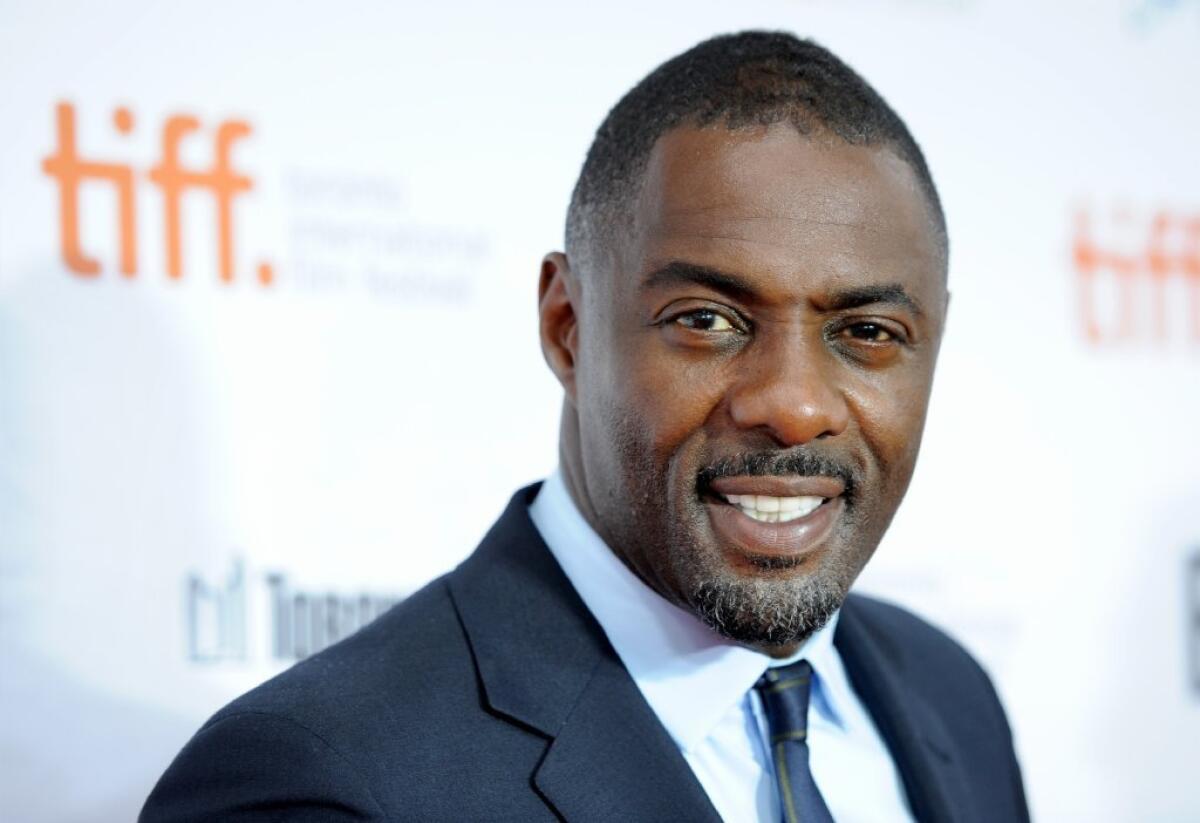TIFF 2013: Conventional ‘Mandela’ premieres, wins ovation

- Share via
TORONTO — There are those Oscar pundits making a mad dash, arms flailing, to cry “first” and annoint “12 Years a Slave” the certain best picture winner, and the gala Toronto screening of the historical drama did little to dissuade those forecasters. When Brad Pitt, who produced and has a small role in the film, told the audience after the movie ended, “If I never get to be in a film again, this is it for me,” there was applause and an awful lot of nodding heads.
Still, it’s September, which means there are many more films to be seen. One of them, another drama focusing on race and injustice, the Weinstein Co.-backed “Mandela: Long Walk to Freedom,” premiered at Toronto on Saturday to ovations of its own, entering the awards season as a traditionally crafted alternative to the uncompromising artistic vision of “12 Years.”
“Mandela” hews closely to a conventional biopic format, telling the story of the South African anti-apartheid leader (played by Idris Elba) over the course of several decades, a lot of speeches and an uplifting score by Alex Heffes that tries to outdo James Horner in its determination to underline every dramatic moment with the sonic equivalent of a Sharpie marker.
PHOTOS: Toronto Film Festival 2013 | Scene
When the 152-minute movie ended, there was a sustained standing ovation at the cavernous, not-quite-full Roy Thompson Hall through the closing credits, not unusual for a gala screening at Toronto but also indicative that there might be room enough this Oscar year for multiple films that examine race in very different fashions.
“Mandela’s” traditional approach will likely appeal to older academy members who appreciate uplifting, message-driven biopics like “Gandhi” and history-skimmers such as “The Iron Lady” and “Ray,” movies that give you a feel for the broad sweep of the title character without much messy nuance or detail.
Or, in some instances, much relation to how people actually talk. Elba’s Mandela often resorts to oratory, even when he’s not in front of a crowd. “I want freedom,” he says at one point. “I have beautiful children and a beautiful wife. I want them to walk free in their own land.”
Message delivered, loud and clear. But when it’s Elba, a rightfully respected actor from his work on “The Wire” and “Luther,” delivering said message, you can often forgive director Justin Chadwick’s biopic-by-the-numbers approach. Or even the prominent use of a song written about Martin Luther King, U2’s rousing anthem “Pride (In the Name of Love),” in a movie about Nelson Mandela.
Introducing “Mandela,” the film festival’s artistic director, Cameron Bailey, declared that “finally, a film that does justice” to Mandela’s life had arrived. How fully the film accomplishes that rather tall order will be the subject of much debate.
But when Bailey later added that the movie was “a big deal and means a lot to a lot of people,” he wasn’t overreaching. That meaning will count for a lot as the film, set for release Nov. 29, begins a long political campaign of its own.
ALSO:
TIFF 2013: Food, glorious food! Movies get cooking
TIFF 2013: ‘Boogie Nights’ table read ’13 inches of awesome’
TIFF 2013: ‘Enough Said’ a bittersweet goodbye to James Gandolfini
More to Read
Only good movies
Get the Indie Focus newsletter, Mark Olsen's weekly guide to the world of cinema.
You may occasionally receive promotional content from the Los Angeles Times.











